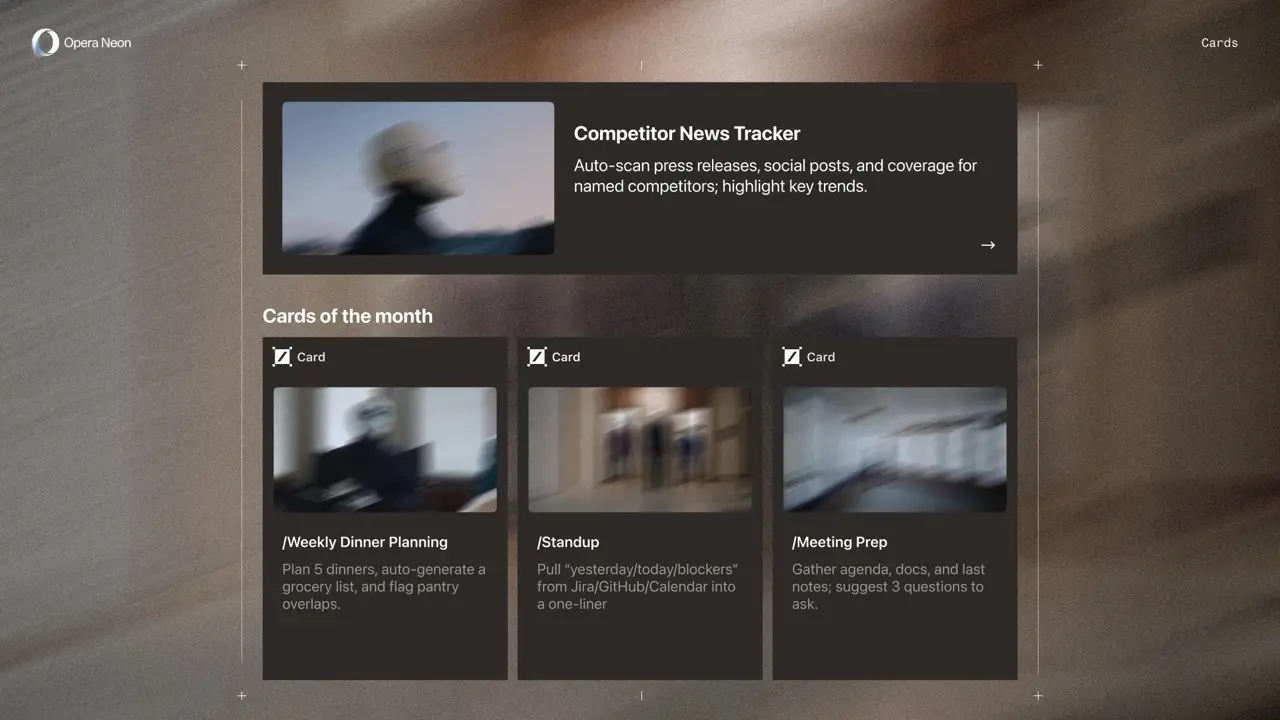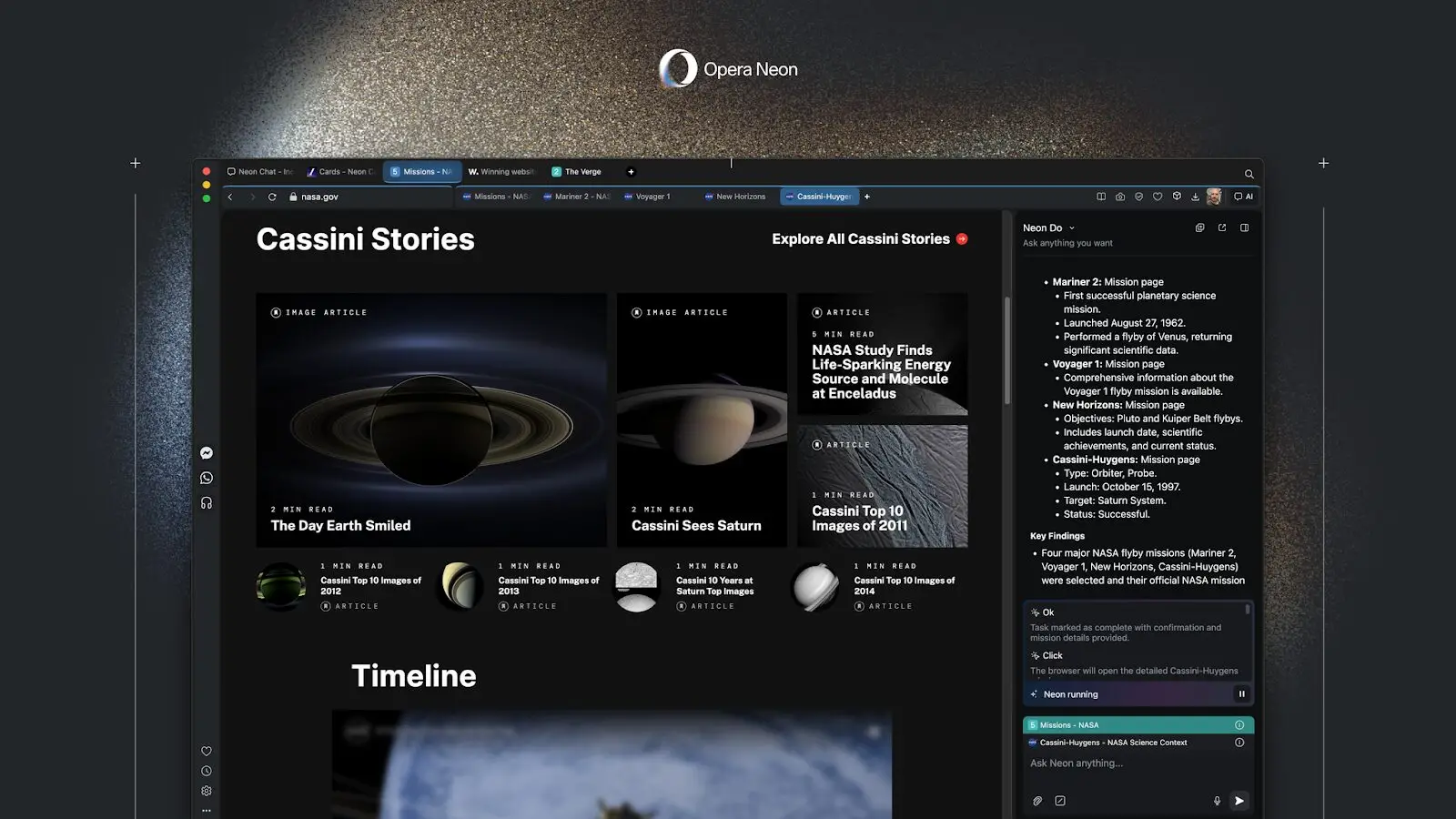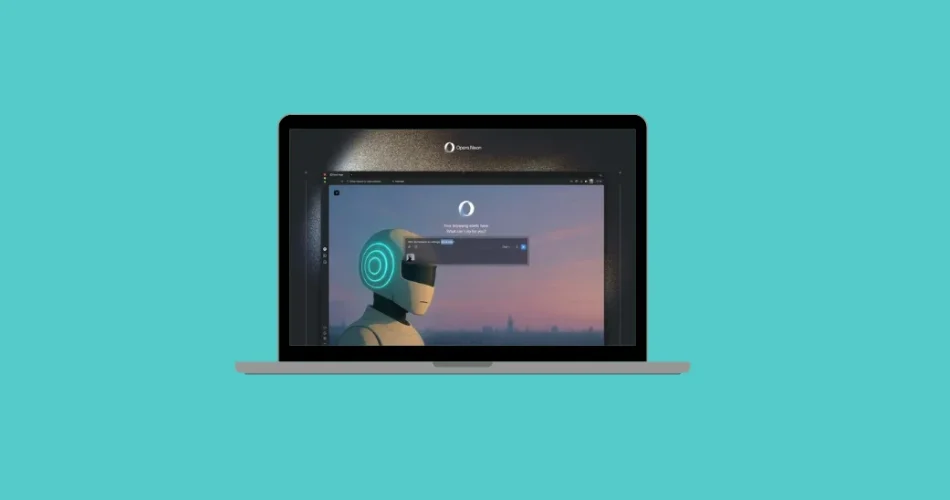The browser market is crowded, with Chrome, Edge, and Firefox dominating the scene. But Opera has always liked to play the role of innovator—and with Opera Neon, it’s pushing boundaries once again.
Officially announced in May, Opera Neon is now rolling out to its first users. Unlike traditional browsers that only sprinkle AI features here and there, Neon is built around artificial intelligence from the ground up. With AI-driven workspaces, automation tools, and even a built-in agent that can act on your behalf, Neon is designed to change not just what you browse, but how you browse.
Let’s take a look at what makes this browser different.
Tasks: Smarter Workspaces for Contextual Browsing
One of Neon’s headline features is Tasks—isolated workspaces where the AI understands your browsing context.
Instead of juggling dozens of tabs and manually piecing information together, Neon’s Tasks automatically group related tabs by project or topic. From there, the AI can:
- Summarize long articles
- Compare data across multiple tabs
- Generate tables directly from web content
Think of each Task as a mini-browser with its own AI assistant focused only on your current project, without being distracted by the rest of your browsing session.
Cards: Reusable AI Actions at Your Fingertips

Another standout feature is Cards—prebuilt, reusable AI prompts that let you trigger actions instantly.
For example, you can create a Card to:
- Compare product specifications
- Extract key points from research papers
- Organize notes from Gmail, Notion, or Google Docs
- Generate quick summaries or visual tables
What makes Cards even more powerful is their flexibility. You can combine them like automation blocks, or explore a dedicated marketplace to find community-made Cards ready to use. It’s like macros and shortcuts—but redesigned for the AI era.
Neon Do: An Agent That Acts on Your Behalf

Perhaps the most ambitious feature of Opera Neon is Neon Do, a local AI agent built directly into your browsing session.
Unlike cloud-based assistants, Neon Do works within your browser without exposing your login details to external servers. It can:
- Navigate pages you’re logged into
- Fill out forms
- Retrieve and compare information
- Perform tasks in real time, right before your eyes
For sensitive actions—like signing into accounts or completing payments—Neon Do pauses and waits for your approval, ensuring you remain in control. You can pause, resume, or guide its behavior at any moment.
The goal: save you time while keeping your privacy intact.
A Browser With a Subscription Model
Here’s the catch—Opera Neon isn’t free. Access costs $19.90 per month, with early adopters joining via a waitlist.
Opera’s strategy is clear: target power users who want advanced features and are willing to pay for a productivity-focused browser. Whether the general public will follow remains uncertain, especially when most browsers are free.
And Opera isn’t alone. Competitors like Comet (by Perplexity) and Dia (by The Browser Company) are also racing to define the “AI browser” category. The question is, which one will actually win over users?
Conclusion
Opera Neon is more than a browser with an AI sidebar—it’s a bold attempt to rethink web browsing itself. With its Task-based workspaces, automation Cards, and Neon Do agent, it promises faster workflows, smarter tab management, and a hands-on AI that doesn’t just assist but acts.
But with its subscription-only model, Neon is betting that convenience and productivity are worth paying for. Whether users agree could shape the future of AI-driven browsers.
One thing’s certain: the era of the intelligent browser has officially begun.
And if you'd like to go a step further in supporting us, you can treat us to a virtual coffee ☕️. Thank you for your support ❤️!

We do not support or promote any form of piracy, copyright infringement, or illegal use of software, video content, or digital resources.
Any mention of third-party sites, tools, or platforms is purely for informational purposes. It is the responsibility of each reader to comply with the laws in their country, as well as the terms of use of the services mentioned.
We strongly encourage the use of legal, open-source, or official solutions in a responsible manner.



Comments